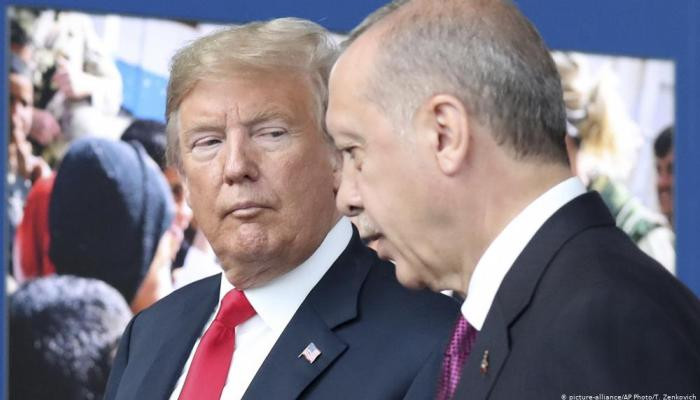U.S. sanctions Turkey over purchase of Russian S-400 missile system
 The Trump administration slapped sanctions on Turkey on Monday over a multibillion-dollar acquisition of a Russian missile system. The long-anticipated move is expected to further stoke tensions between Washington and Ankara in the weeks ahead of President-elect Joe Biden’s ascension to the White House and send a message to foreign governments considering future weapons deals with Russia. In 2017, Turkish President Recep Erdogan brokered a deal reportedly worth $2.5 billion with Russian President Vladimir Putin for the S-400 missile system. The S-400, a mobile surface-to-air missile system, is said to pose a risk to the NATO alliance as well as the F-35, America’s most expensive weapons platform. Despite warnings from the United States and other NATO allies, Turkey accepted the first of four missile batteries in July 2019. A week later, the United States cut Turkey, a financial and manufacturing partner, from the F-35 program. Under the Countering America’s Adversaries Through Sanctions Act, which Trump signed in August 2017, Turkey faced potential economic sanctions for accepting the Kremlin’s missile system. Trump had not yet imposed sanctions on Turkey. “Turkey is a valued ally and an important regional security partner for the United States, and we seek to continue our decades-long history of productive defense-sector cooperation by removing the obstacle of Turkey’s S-400 possession as soon as possible,” Secretary of State Mike Pompeo wrote in a statement announcing the sanctions. “Well, it’s about damn time. Strong, well-tailored sanctions are painfully overdue,” said Thomas Karako, director of the Missile Defense Project at the Center for Strategic and International Studies, when asked about the sanctions. “The details will matter a lot. This could turn out to be a softball. If the sanctions are to be meaningful, they can’t be mere token,” Karako added. The timing of the sanctions, more than a year after the delivery of the missile system, could have the potential to rock relations between Ankara and Washington for an incoming Biden administration. State Department officials downplayed the timing, saying that the process of implementing sanctions was “very serious” and “deliberative.” “It took time to work through this complex set of issues, including, in particular, the fact that Turkey is a NATO ally, so I would not read too much into the timing of this and why today and not yesterday or three months ago,” said Matthew Palmer, deputy assistant secretary in the Bureau of European and Eurasian Affairs, during a call with reporters. “This is the time that was necessary for us to conclude that deliberative process.” |

Trump says Board of Peace members pledged over $5B for Gaza
269Yesterday, 21:39
EU plans crypto ban for Russia, FT reports
79411.02.2026, 00:48
US Treasury Secretary says US sanctions crushed Iran’s economy and sparked protests (video)
84706.02.2026, 10:43
Elon Musk just became the first person ever worth $800 billion after SpaceX acquired xAI
79004.02.2026, 18:30
Xi Jinping calls for China’s renminbi to attain global reserve currency status
74101.02.2026, 23:05
Trump signs order allowing US to impose tariffs on countries supplying oil to Cuba
78930.01.2026, 12:17
